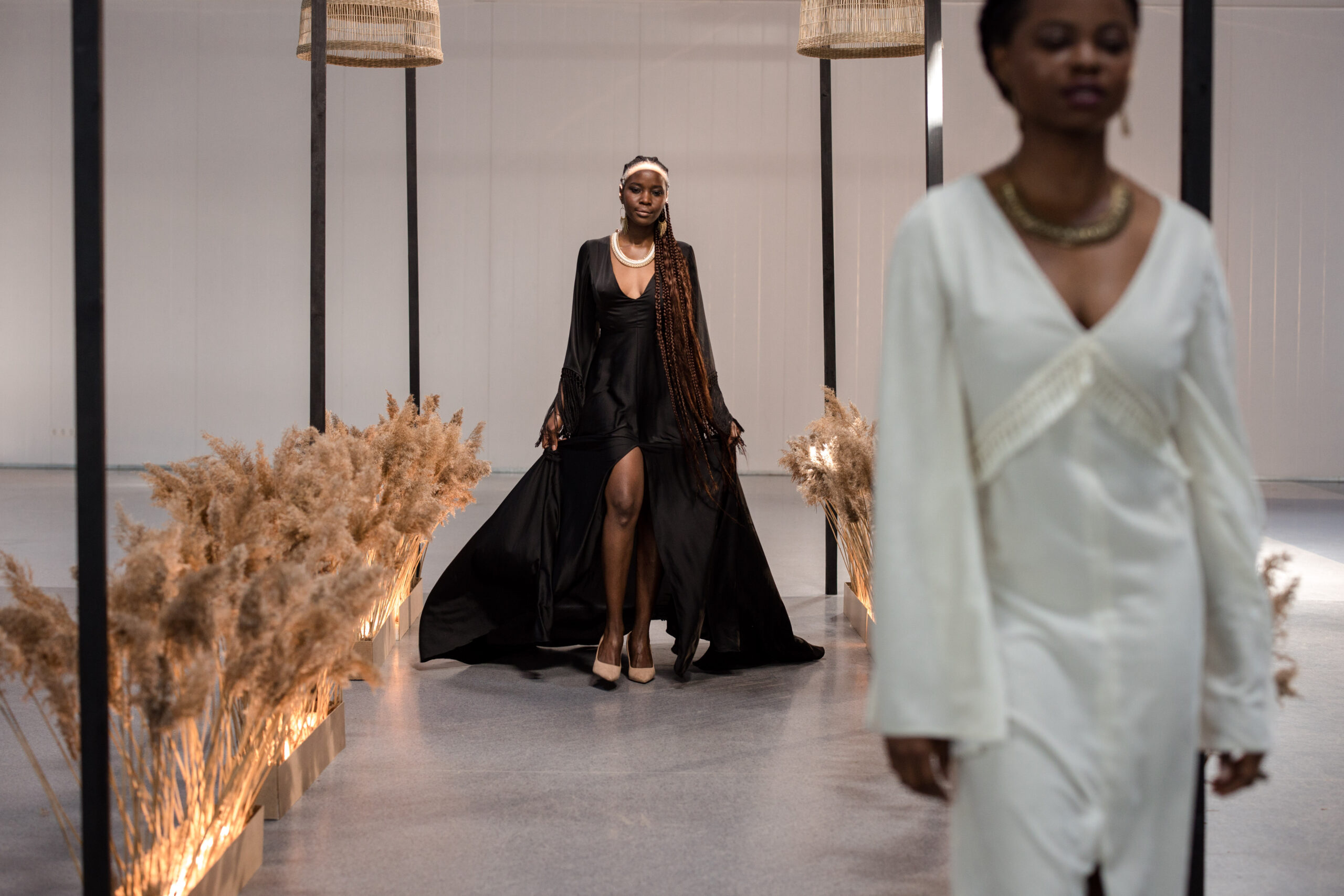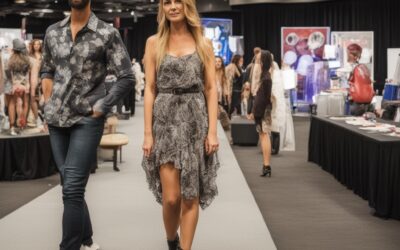As we march steadily into the future, fashion – an ever-evolving facet of human culture – has a crucial role to play in shaping our sustainable practices. New Zealand Fashion Week, a reputable event in the global fashion calendar, has been setting a commendable example in this regard. This annual spectacle, held in Auckland, has always been about more than just the glitz and glamour of fashion. It signifies an essential shift towards sustainable choices, promoting an awareness that resonates with both consumers and the industry.
Tickets for New Zealand Fashion Week are usually made available online a few months prior to the event, with various options depending on the shows you wish to attend. You can easily register through their official website. It is organized by the NZ Fashion Week Ltd., a company committed to offering a platform for local and international designers to showcase their creativity and innovation, with a particular emphasis on sustainability.
Now, let’s delve into the myriad ways that the New Zealand Fashion Week champions sustainability in fashion.
Promoting Local Designers and Craftsmanship
The New Zealand Fashion Week has always been a staunch supporter of local talent. This ethos of encouraging homegrown designers not only helps to foster a vibrant, local fashion industry but also contributes significantly to sustainability.
The essence of sustainability lies in reducing unnecessary waste and harmful environmental impact. When we consider the carbon footprint left by the global transportation of goods, promoting local designers becomes a natural step towards sustainability. Clothes made and sold locally result in fewer greenhouse emissions because they travel lesser distances from the manufacturer to the consumer.
Moreover, by backing local designers, New Zealand Fashion Week helps preserve traditional skills and crafts. Many of these designers employ artisans who utilize age-old techniques that are often more environmentally friendly than mass production methods. An example is the Māori designer Shona Tawhiao, who showcases her garments made from traditional harakeke (flax) weaving, a sustainable alternative to synthetic fabrics.
Apart from supporting local industries, promoting local designers also ensures ethical labor practices. Local brands have more control and visibility over their supply chain, which allows for better monitoring of workers’ rights and working conditions.
In essence, by providing a platform for local talent, New Zealand Fashion Week is not just fostering creativity and diversity, but also making a significant contribution towards a sustainable fashion industry.
Showcasing Sustainable Fabrics
Another major step New Zealand Fashion Week takes towards sustainability is the promotion of sustainable fabrics. The designers that showcase their work at the event are encouraged to use fabrics that have minimal environmental impact.
Sustainable fabrics are materials that are environmentally friendly in their growth or production, as well as in their disposal. They require less water and fewer pesticides during growth (in the case of natural fibers) and release fewer toxins during production (in the case of synthetic ones).
One example of this can be seen in the collections of Maggie Marilyn, a New Zealand-based designer. She is known for using organic cotton, hemp, and recycled polyester, showcasing the elegance and versatility of these materials. This serves to debunk the myth that sustainable fabrics cannot compete with conventional ones in terms of quality and aesthetics.
Another innovative practice seen in NZFW is the use of regenerated materials. Designers are experimenting with materials like Pinatex, a leather substitute made from pineapple waste, or Econyl, a fabric regenerated from nylon waste. These practices significantly reduce the waste generated by the fashion industry.
By placing these materials in the spotlight, NZFW helps to increase consumer awareness about the importance of choosing sustainable fabrics, and the impact these choices have on the environment.
Advocating for Slow Fashion
Slow fashion is a concept that rejects the fast-fashion model of mass production and consumption. It advocates for manufacturing with respect to people, the environment, and animals. As such, it encourages slower production schedules, fair wages, lower carbon footprints, and (ideally) zero waste.
New Zealand Fashion Week has become a platform for promoting the slow fashion movement. Designers participating in the event are increasingly focusing on producing fewer, higher-quality items that are meant to last. The philosophy of “less is more” is encouraged, focusing on timeless design and superior craftsmanship that can withstand the test of time.
An example of this is the brand Kowtow. Their collection at NZFW often revolves around minimalist designs that don’t follow fleeting trends. The garments are meant to be versatile, transcending seasons and lasting for years in your wardrobe. The quality of materials and construction ensure that these pieces will not fall apart after a few wears, encouraging consumers to buy less but better.
Promoting slow fashion is an important step toward sustainability. It challenges the current “throw-away” culture and reduces the overall demand for new clothing, thus minimizing the environmental impact of the fashion industry.
Encouraging Ethical Consumption
Sustainable fashion isn’t just about what designers create; it’s also about how consumers react to those creations. To that end, New Zealand Fashion Week plays an important role in advocating for ethical consumption.
Ethical consumption involves buying products that are not only environmentally friendly but are also produced in a way that doesn’t exploit workers or animals. The ultimate goal is to change consumer behavior and shift demand towards products that are good for both people and the planet.
During the fashion week, panel discussions, and workshops are often organized around this topic, enlightening consumers about the impact of their shopping habits. They are encouraged to consider factors like the materials used, the working conditions of the people who made the clothes, and the overall lifecycle of the product before making a purchase.
Moreover, several designers exhibiting at NZFW are transparent about their supply chain, revealing where and how their clothes are made. This fosters trust and empowers consumers to make informed decisions.
By promoting ethical consumption, New Zealand Fashion Week not only helps to cultivate a more conscious consumer base but also puts pressure on the industry to improve its practices.
Promoting Zero-Waste Designs
Zero-waste design is a unique approach in a fashion that aims to create clothing through patterns that leave not a scrap of fabric behind. This way of designing requires innovation and an in-depth understanding of garment construction.
New Zealand Fashion Week, as a platform for creativity and innovation, has been instrumental in promoting zero-waste designs. Several designers, like the renowned New Zealand designer Kate Sylvester, have been incorporating zero-waste techniques in their collections. These designs challenge the conventional ways of pattern cutting, resulting in unique and creative garments.
Zero-waste designs showcased at NZFW demonstrate that sustainability and style can go hand in hand. They inspire other designers to think outside the box and find creative solutions to the waste problem in the fashion industry.
Encouraging Upcycling and Recycling
In an effort to minimize waste and promote sustainability, New Zealand Fashion Week has been a platform for promoting upcycling and recycling in fashion. These are creative ways of transforming unwanted materials or old garments into new, high-quality items.
Designers at the NZFW have shown collections featuring upcycled and recycled materials, sparking conversations about the potential of these practices in reducing the environmental impact of the fashion industry. For example, Annah Stretton, a New Zealand designer, has been known to create unique, one-off pieces from vintage and reclaimed fabrics.
In addition to providing a platform for these practices, NZFW has been instrumental in changing perceptions about upcycled and recycled fashion. By showcasing the creativity and craftsmanship involved in these processes, they have helped to elevate these practices from a niche, often stigmatized area to a respected part of the fashion industry.
Reducing Event’s Environmental Footprint
New Zealand Fashion Week itself strives to be a sustainable event. Every year, they undertake several initiatives to minimize the environmental impact of the event. These include measures like minimizing plastic use, recycling waste, and offsetting carbon emissions.
One such initiative is the use of digital tickets instead of printed ones, reducing paper waste. They also encourage attendees to use public transportation or provide shuttle services to minimize carbon emissions.
In addition, NZFW collaborates with local businesses to ensure that all food and beverages served at the event are locally sourced and served in reusable or recyclable containers.
These efforts reflect the commitment of the organizers to not only promote sustainability in the fashion industry but also practice it in their operations.
Fostering Collaborations for Sustainability
New Zealand Fashion Week has been a catalyst for fostering collaborations that aim for sustainability. Designers, suppliers, retailers, and other stakeholders come together during this event, creating a space for dialogue and partnership.
These collaborations often lead to innovative solutions for sustainability in the fashion industry. For instance, a designer might partner with a local fabric supplier to develop new sustainable materials, or retailers might team up with designers to create sustainable collections exclusively for their stores.
Such collaborations not only help to push the boundaries of what is possible in sustainable fashion but also help to spread awareness and commitment to sustainability throughout the industry.
Hosting Educational Events and Discussions
During New Zealand Fashion Week, a series of educational events and discussions are held that center around the topic of sustainability. These sessions include talks by industry experts, panel discussions, workshops, and documentary screenings that address various aspects of sustainable fashion.
These discussions provide valuable insights into the current state of the industry, the challenges faced, and potential solutions. They are a source of inspiration and knowledge for designers, students, consumers, and anyone interested in the subject.
By facilitating these educational events, NZFW helps to spread awareness about sustainability in fashion and inspires action towards a more sustainable future.
Making Sustainability Fashionable
Perhaps the most significant contribution of New Zealand Fashion Week to sustainable fashion is making it fashionable. They have been instrumental in proving that sustainable fashion doesn’t have to be dull or basic – it can be just as stylish, vibrant, and innovative as conventional fashion.
Through the collections showcased at the event, NZFW has consistently shown that style and sustainability are not mutually exclusive. Designers like Karen Walker and Hailwood have presented stunning collections that are sustainable, proving that you don’t have to compromise style for sustainability.
This has helped to change the perception of sustainable fashion among consumers and the industry, making it a desirable choice rather than an obligation. By making sustainability fashionable, New Zealand Fashion Week has played a key role in driving the sustainable fashion movement forward.
To conclude, New Zealand Fashion Week offers a compelling example of how fashion events can promote sustainability. From showcasing sustainable designs to educating attendees about sustainable practices, it is truly paving the way for a more sustainable fashion industry. Whether you’re a fashion enthusiast, designer, or just someone concerned about the environment, a visit to this event can be a truly enlightening experience.
We welcome any suggestions or questions. You can email us or contact us using the contact page.
You can also connect with us on the following social networks:









0 Comments